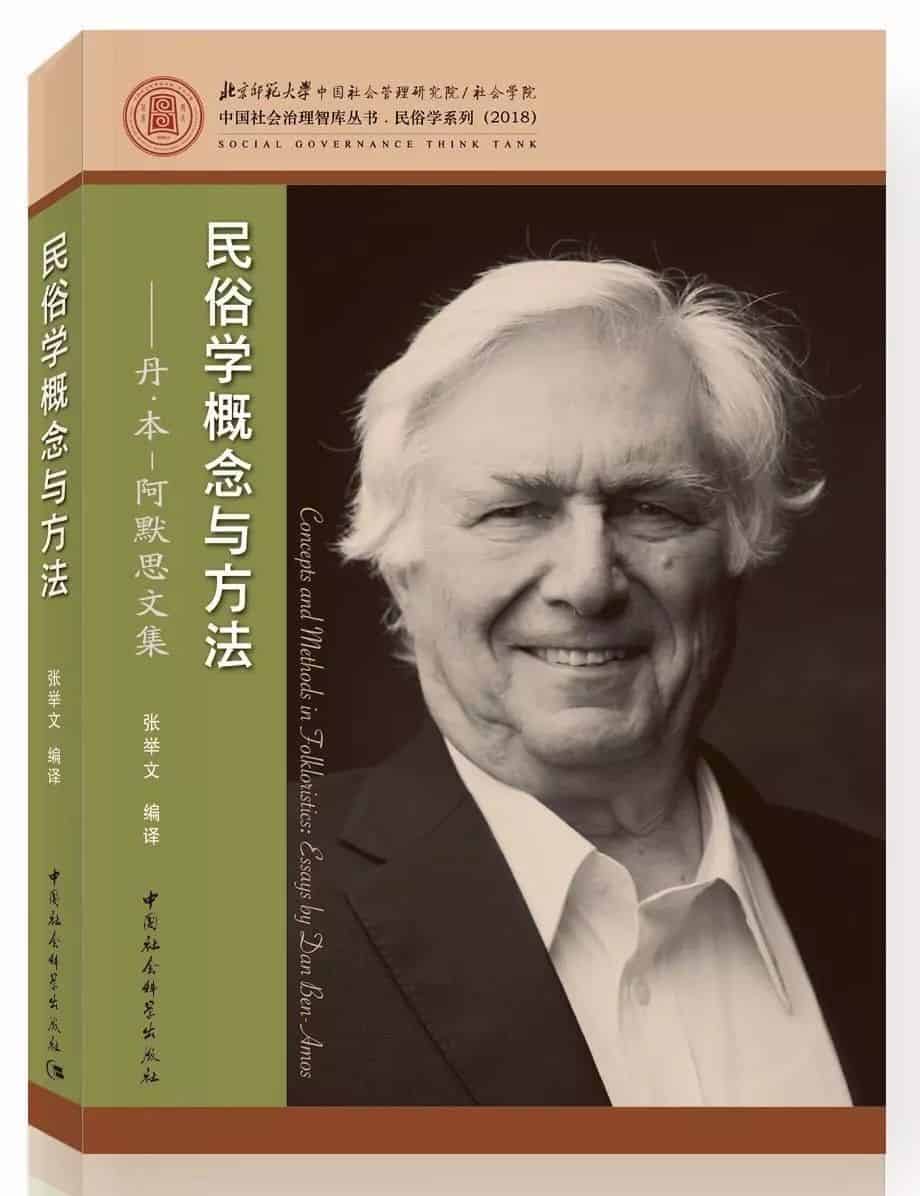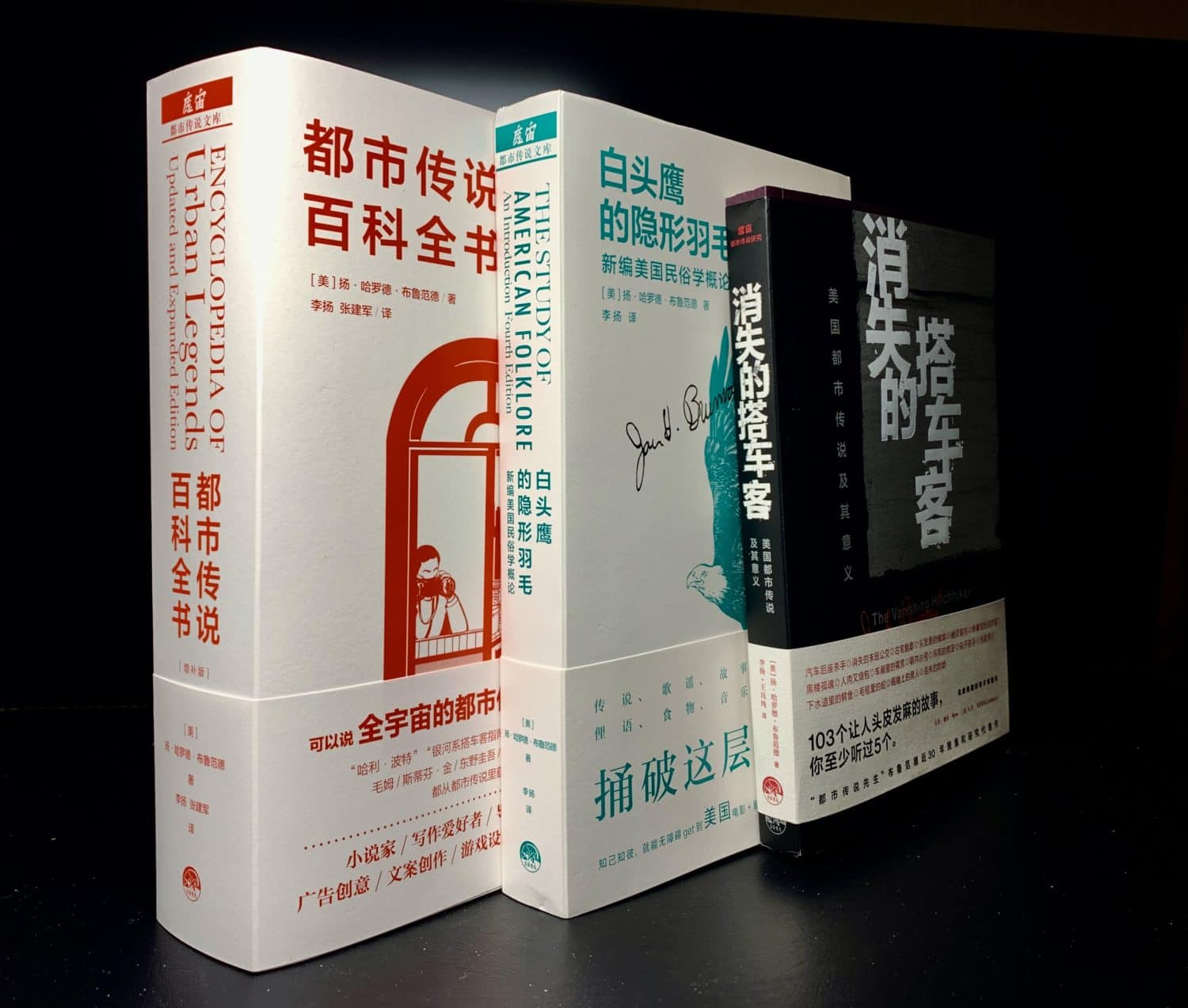Translations: American Folklore Scholarship Published in China
By Juwen Zhang—
The development of a discipline is inseparable from translations. Usually, translations can be either individual articles or a systemic introduction of one author’s theoretical and methodological achievements over years. In the field of folklore studies in China, systemic introductions to some American folklorists have played an increasingly important role in the reconstruction and growth of Chinese folkloristics (e.g., four dozen graduate programs in folklore, plus even more “cultural industry management” and “cultural heritage” graduate programs in Chinese universities). Of course, at least a hundred articles by folklorists in the US and Europe have been translated and published in Chinese in the past two decades or so, but they are not what is meant here by “systemic translation/introduction.”
Some examples of systemic introductions in Chinese include:
- Alan Dundes’s 12 essays in a collection (2005 by Hu Xiaohui);
- Michael O. Jones’ three articles on folk arts (2006 by Ziying You and J. Zhang);
- Richard Bauman’s Verbal Arts as Performance (2008 by Lihui Yang and Deming An);
- Sharon Sherman’s Documenting Ourselves (2011, trans. by J. Zhang);
- Dan Ben-Amos’s 18 essays in a collection (2018 by J. Zhang et al);
- Simon Bronner’s 3 essays on “practice theory” (2019-2021 by various translators).

Today, I want to highlight a “trilogy” of Jan Brunvand’s works in Chinese: three systemic translations by the “Jan” of China (Yang Li, with whom I have translated Dan Ben- Amos’s “The Concept of Motif in Folklore” in 1984). The two—Jan and Yang—have kept their friendship for nearly 30 years. The three translations (image below; the Encyclopedia is fresh out the oven) are:
- The Vanishing Hitchhiker: American Urban Legends and Their Meanings, translated by Yang Li and Yujue Wang (1 st ed. 2006; 2 nd ed. 2018)
- The Study of American Folklore: An Introduction, translated by Yang Li (1 st ed. 1993; 2 nd ed. 2011; 3 rd ed. 2020)
- Encyclopedia of Urban Legends, translated by Yang Li and Jianjun Zhang (2020).


It is obvious that these translations have greatly stimulated the studies of urban legends in China, and provided a comprehensive textbook of American folklore studies. Ironically, when the first edition of Chinese translation of The Vanishing Hitchhiker was published by a university press, with grant subsidization, it was poorly sold as academic work. When it was later “hitchhiked” by a commercial press, the sales shot up like a rocket. As a result, this rocket also brought up the sale and popularity of the Encyclopedia of Urban Legends. I must stop telling more legends like this, but hope you find more yourself in the Metafolklore: Stories of Sino-US Folkloristic Communication (Bilingual edition, 2017).

Coming up next—“don’t go away,” a systemic introduction of paremiologist Wolfgang Mieder’s 21 collected essays will soon be published in China. At the same time, one collection of 10 essays by Jack Zipes on fairy tale studies, and another collection of 24 essays by Jack Zipes on folk and fairy tales, storytelling, children’s literature will also be soon published in China. In fact, about ten of their essays have been published in journals in the past two years. I feel it has been a privileged opportunity to study and re-study so many great folklorists’ works as I translate and help other young folklorists translate them.
Looking at the reverse, it is unfortunate to notice that, in the US, there have not been systemic translations, or even “enough” individual translations of many insightful works by Chinese folklorists. Exceptional examples include one collection (Chinese Folklore Studies Today, eds. L. Zhang, Z. You, Indiana University Press, 2019) and two special issues in the journal of Western Folklore, with the vision and auspiciousness of Editor Anthony Buccitelli—one on “Intangible Cultural Heritage in China” (76.2, 2017), and one on “New Directions of Folklore Studies in China” (upcoming in 81.1/2, 2022) with 12 representative essays.
If we believe that folklore is organic, then folkloristics should gain its vitality by digesting all kinds of nutrition. More significantly, folklorists can enrich their own lives by knowing more about others.
We sometimes make mistakes, and we are happy to correct any errors that you may come across on our site. If you find an error, please let us know using the “submit a correction” link.